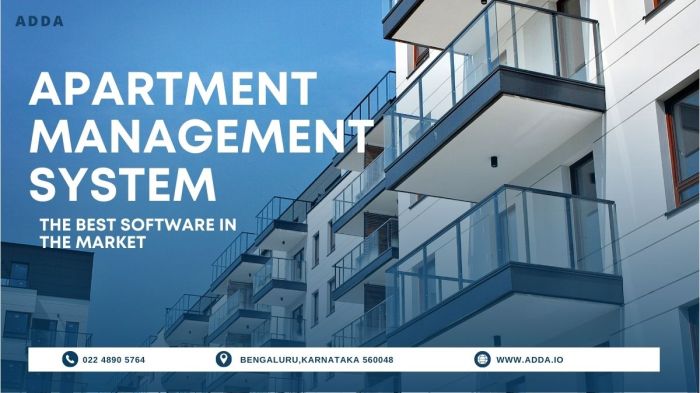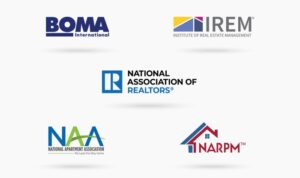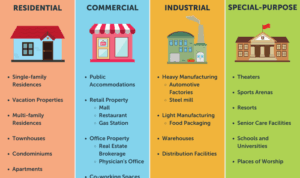Navigating the world of apartment property management involves a myriad of responsibilities and challenges. From maintaining tenant relations to handling property maintenance, this guide delves into the essential aspects of ensuring a thriving residential community.
Overview of Apartment Property Management
Apartment property management plays a crucial role in overseeing residential properties to ensure they are well-maintained and profitable. Property managers are responsible for handling various aspects of property operations and tenant relations.
Key Responsibilities of Apartment Property Managers
- Collecting rent payments and enforcing lease agreements to ensure on-time payments.
- Maintaining the property by overseeing repairs, landscaping, and cleaning services.
- Screening and selecting tenants to ensure a safe and harmonious community.
- Addressing tenant concerns and handling maintenance requests promptly.
- Managing budgets, financial records, and preparing regular reports for property owners.
Importance of Efficient Property Management
Efficient property management is essential for maintaining tenant satisfaction and retention. By effectively managing the property, property managers can ensure a high level of tenant comfort, safety, and overall satisfaction. This, in turn, leads to a positive reputation for the property, increased tenant referrals, and ultimately higher occupancy rates and profitability.
Tenant Relations and Communication
Effective communication with tenants in apartment complexes is essential for maintaining a positive relationship and ensuring long-term success for the property. Apartment property managers need to establish clear lines of communication to address concerns, provide updates, and foster a sense of community among residents.
Strategies for Effective Communication
- Regular newsletters or emails to update tenants on property news and events.
- Utilizing a dedicated online portal for maintenance requests and inquiries.
- Hosting community events or meetings to address concerns and gather feedback.
- Being responsive to phone calls, emails, and in-person inquiries in a timely manner.
Handling Tenant Complaints and Concerns
- Listen actively to understand the tenant's perspective and show empathy.
- Address the issue promptly and communicate the steps being taken to resolve it.
- Follow up with the tenant to ensure their satisfaction with the resolution.
- Document all complaints and resolutions for future reference and transparency.
Significance of Maintaining Positive Tenant Relations
Maintaining positive tenant relations is crucial for the long-term success of an apartment complex. Happy tenants are more likely to renew their leases, refer new tenants, and take better care of the property. Positive relationships also lead to a sense of community and cooperation among residents, creating a more pleasant living environment for everyone.
Property Maintenance and Repairs
![11 Best Apartment Property Management Software [2023 Guide] 11 Best Apartment Property Management Software [2023 Guide]](https://smart.viralsumsel.com/wp-content/uploads/2025/06/6171eb84f6710949e3e0a287_1920apartment-property-management-software-1X_4bd4fc7d0724b24c5d7f54fb3397910d.png)
Maintaining a property is vital for ensuring tenant satisfaction, retaining property value, and promoting a safe and comfortable living environment. Proper management of maintenance requests and repairs is crucial in apartment buildings to address issues promptly and efficiently.
Managing Maintenance Requests
- Establish a clear process for tenants to submit maintenance requests, whether through an online portal, email, or phone.
- Assign a dedicated maintenance team or contractor to address and resolve maintenance issues in a timely manner.
- Regularly communicate with tenants regarding the status of their maintenance requests to ensure transparency and accountability.
Ensuring Timely Upkeep
- Implement a regular inspection schedule to identify maintenance needs proactively.
- Prioritize urgent repairs to prevent further damage or inconvenience to tenants.
- Maintain a detailed record of maintenance history and expenses to track trends and plan for future upkeep.
Preventative Maintenance for Property Value
- Develop a preventative maintenance plan that includes routine tasks such as HVAC servicing, pest control, and landscaping.
- Invest in regular inspections and upkeep to address minor issues before they escalate into costly repairs.
- Educate tenants on their role in property maintenance and encourage them to report any potential issues promptly.
Financial Management and Budgeting
Managing the finances of an apartment complex is a crucial aspect of property management. It involves various responsibilities such as rent collection, budgeting, financial reporting, and accounting.
Rent Collection
One of the primary financial responsibilities of apartment property managers is to ensure timely rent collection from tenants. This involves setting up a system for rent payment, enforcing late fees when necessary, and handling any issues related to rent payments.
Budgeting
Property managers are also tasked with creating and managing budgets for apartment complexes. This includes forecasting income and expenses, setting financial goals, and allocating funds for maintenance, repairs, and other operational costs.
Financial Reporting and Accounting
Property managers handle financial reporting by keeping track of income and expenses, preparing financial statements, and providing regular updates to property owners or stakeholders. They also oversee accounting processes such as reconciling accounts, managing invoices, and ensuring compliance with financial regulations.
Maximizing Revenue and Minimizing Expenses
Property managers employ various strategies to maximize revenue and minimize expenses in apartment property management
Legal Compliance and Risk Management
In the realm of apartment property management, adhering to legal requirements and mitigating risks are crucial aspects to ensure smooth operations and protect both tenants and property owners from potential liabilities.
Legal Requirements and Regulations
- Compliance with Fair Housing Laws: Property managers must adhere to federal, state, and local fair housing laws to prevent discrimination based on race, color, religion, sex, national origin, disability, or familial status.
- Property Codes and Regulations: Ensuring that the property meets all building codes, safety regulations, and health standards is essential to maintain a safe and habitable environment for tenants.
- Lease Agreement Compliance: Property managers must draft and enforce lease agreements that comply with legal standards, outlining the rights and responsibilities of both tenants and landlords.
Risk Mitigation Strategies
- Regular Inspections and Maintenance: Implementing routine inspections and maintenance procedures can help identify potential hazards and address them promptly to prevent accidents or injuries.
- Insurance Coverage: Obtaining comprehensive liability insurance coverage can protect property managers and owners from financial losses in case of property damage or accidents on the premises.
- Legal Counsel: Seeking advice from legal professionals specializing in real estate law can provide guidance on complex legal issues such as evictions, lease disputes, or compliance matters.
Handling Lease Agreements and Evictions
- Lease Enforcement: Property managers must ensure that all lease agreements are enforced fairly and consistently to maintain a harmonious landlord-tenant relationship.
- Eviction Procedures: When faced with non-compliant tenants, property managers must follow legal eviction procedures to protect the rights of both parties and resolve disputes effectively.
- Documentation: Keeping detailed records of lease agreements, communications with tenants, and any legal proceedings is essential to support legal compliance and risk management efforts.
Marketing and Leasing Strategies

Effective marketing and leasing strategies are crucial for maintaining high occupancy rates in apartment complexes. Property managers play a key role in attracting tenants, developing leasing tactics, and ensuring a steady flow of new residents.
Attracting Tenants through Marketing
Marketing plays a vital role in attracting tenants to apartment complexes. Property managers can utilize various tactics to reach potential renters, such as:
- Utilizing online platforms and social media to showcase available units
- Collaborating with local businesses and organizations for referrals
- Creating eye-catching signage and advertisements around the property
Developing Leasing Strategies
Developing effective leasing strategies is essential for maintaining high occupancy rates. Property managers can implement the following tactics to ensure a smooth leasing process:
- Offering competitive rental rates and incentives to attract tenants
- Providing excellent customer service during property showings and lease signings
- Utilizing technology for online applications and lease agreements
Role of Property Managers in Tenant Screening
Property managers play a crucial role in screening potential tenants to ensure a safe and harmonious community. Some responsibilities include:
- Conducting thorough background checks and credit screenings
- Verifying employment and income to assess financial stability
- Communicating lease terms and property rules clearly to prospective tenants
Technology and Innovation in Property Management
Technology is revolutionizing the way apartment property management operates, providing numerous benefits in terms of efficiency, tenant satisfaction, and overall effectiveness. By embracing innovative tools and software solutions, property managers can streamline operations, enhance communication, and improve the overall tenant experience.
Property Management Software and Tools
Property management software has become essential for modern property managers to effectively handle various tasks such as lease management, rent collection, maintenance requests, and communication with tenants. These tools help automate processes, reduce manual errors, and provide real-time insights into property performance.
- Centralized Data Management: Property management software allows for the centralized storage of all property-related information, making it easily accessible and organized for efficient decision-making.
- Automated Communication: Tools like tenant portals and automated messaging systems enable property managers to communicate effectively with tenants, ensuring timely responses to queries and concerns.
- Maintenance Tracking: Software solutions help track maintenance requests, schedule repairs, and monitor vendor performance, leading to quicker resolution of issues and improved property maintenance.
Innovative Technologies for Tenant Experience
Innovative technologies are transforming the tenant experience in apartment complexes, offering convenience, safety, and enhanced living environments. From smart home devices to virtual tours, these technologies are reshaping the way tenants interact with their living spaces.
- Smart Home Automation: IoT devices such as smart thermostats, lighting systems, and security cameras allow tenants to control their living environment remotely, increasing comfort and security.
- Virtual Tours and 3D Floor Plans: Virtual reality technology enables potential tenants to take immersive virtual tours of properties, providing a realistic preview of the space and amenities.
- Mobile Apps for Tenant Services: Property management companies are developing mobile apps that offer tenants easy access to services like rent payment, maintenance requests, and community events, enhancing convenience and communication.
Final Conclusion
As the curtains draw to a close on this discussion, it is evident that effective apartment property management is a balancing act of communication, maintenance, finances, and legal compliance. By implementing the strategies Artikeld in this guide, property managers can pave the way for long-term success and tenant satisfaction.
FAQ Corner
What are some common strategies for effective communication with tenants?
Establishing open lines of communication, utilizing digital platforms for updates, and conducting regular meetings with tenants.
How do property managers handle financial reporting for apartment complexes?
Property managers track income and expenses, create detailed reports, and ensure compliance with accounting standards.
What legal aspects should property managers be aware of in apartment property management?
Understanding lease agreements, eviction procedures, fair housing laws, and building codes are crucial for legal compliance.






